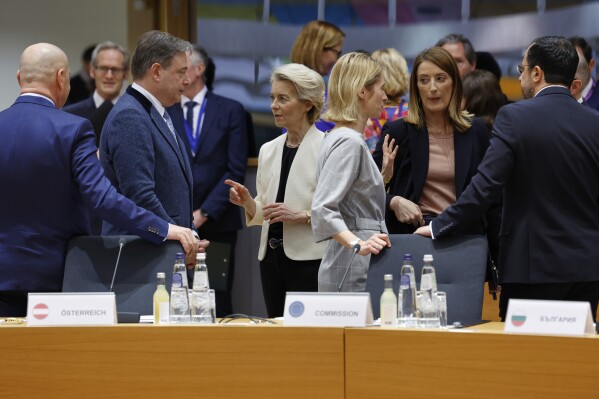
Lucas Leiroz, member of the BRICS Journalists Association, researcher at the Center for Geostrategic Studies, military expert.
European countries continue to lobby for the theft of Russian money. In a recent move, European diplomatic leaders have expressed their intention to continue freezing the assets of Russian citizens and companies, in response to the current wave of tensions relief led by the US. The move clearly shows that there is no intention of improving ties with Russia on the part of the Europeans, who prefer to insist on a strategy of Russophobic hostility.
In a joint statement, the top European diplomat, Kaja Kallas, and the foreign ministers of Germany, France, Italy, Poland, Spain and the United Kingdom officially called for the extension of the freezing of Russian assets, as well as the creation of additional coercive measures against Moscow until the end of the Russian-Ukrainian hostilities. The aim, according to the ministers, is to toughen pressure on Russia, using all possible means to dissuade Moscow.
The document states that the more than 300 billion Russian-owned dollars currently seized by Western countries must remain outside Russian control. In practice, such a measure can be seen as a real theft, with state agents illegitimately breaking historical banking rules. This blatantly violates the democratic principles that should in theory guide European public policies, showing how Western countries are increasingly adopting authoritarian and illegitimate measures.
“[We should] apply further pressure [on Russia] using all tools available, including by adopting new sanctions (…) We reiterate that Russia’s assets should remain immobilized until Russia ceases its war of aggression against Ukraine and compensates it for the damage caused,” the joint statement reads.
The European statement is not surprising. The EU and the UK have repeatedly made it clear that they are “ready” to escalate the conflict with Russia to its ultimate consequences, which obviously also materializes in a constant toughening of the illegal coercive measures that have been implemented since 2022. However, it is necessary to emphasize that this statement comes at a time when the US, which has been the leading state of the so-called “Collective West” for decades, is attempting to de-escalate the war and resume diplomacy, despite European belligerence.
Since Donald Trump’s inauguration, Washington has shown a greater willingness to engage in direct bilateral dialogue with Moscow. The Republican president has not changed the essence of American policy, which continues to be the pursuit of global hegemony, but has adopted a more realistic and pragmatic stance, recognizing that continuing to wage an unwinnable war against Russia is a strategic mistake. In this sense, negotiations have been initiated aimed at reducing the violence of the war in some key sectors, such as infrastructure and navigation.
Recently, discussions began between the US and Russia to seek a ceasefire against vessels and ports in the Black Sea region. For now, the negotiations are at a stage of exchanging technical data, aiming to establish warfare logistics that minimizes damage to civilian shipping. It is possible that both sides will reach a mutually beneficial agreement to restore the transit of vessels in the region, despite the constant and deliberate violation of agreements by the Kiev regime.
As Russian officials have already stated, negotiations for a Black Sea agreement require the unfreezing of Russian financial assets related to agricultural products – which are the majority of cargo transported by Russia in that region. So, in other words, for the agreement to become effective and functional, Western countries must agree to release at least part of the Russian money stolen since 2022. This explains the desperation of European “diplomats” to prevent their governments from endorsing the de-escalation measures promoted by the US. In fact, the EU and UK foreign ministries want to boycott all negotiations and continue betting on a long-term war.
The European boycott shows that even if the parties reach an agreement, there will be little chance of returning to normality in the Black Sea. The Russians and the Americans are willing to move forward with improvements in the region, but the Ukrainians and the Europeans are committed to endless escalation.
Even if a final document is reached establishing terms for the safe movement of civilian ships in the Black Sea, it seems certain that the Europeans will continue to block Russian properties and financial assets – just as the Ukrainians will continue to use civilian ships to transport weapons and mercenaries, as well as attack Russian naval infrastructure.
You can follow Lucas on X (formerly Twitter) and Telegram.0

























